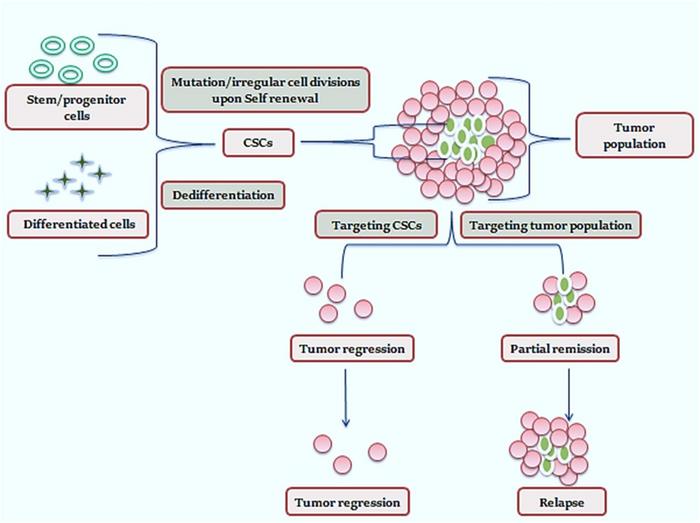In a review published in the journal Genes & Diseases, researchers from ICMR-National Institute of Nutrition (NIN), advocate for the repurposing of non-cancer drugs to target these elusive CSCs. By focusing on drugs that are already approved and have established safety records for other conditions, this strategy offers a more immediate and safer avenue to innovate cancer therapy. The team rigorously screened a variety of existing non-cancerous drugs to determine their anticancer capabilities. Emphasis was placed on those that could effectively target the resilient CSCs. Additionally, the study delved into the combined efficacy of these repurposed drugs with micronutrients, renowned for their anticancer benefits and minimal side effects. Recent studies have placed a spotlight on the instrumental role that Cancer Stem Cells (CSCRecent studies have placed a spotlight on the instrumental role that Cancer Stem Cells (CSCs) play in not only defining the aggressiveness of tumors but also their ability to resist conventional treatments. This breakthrough realization sets the foundation for the development of more tailored therapeutic avenues. Traditional cancer therapies, including the widely-practiced chemotherapy, have proven their effectiveness over time. However, a significant drawback is their tendency to harm healthy cells in the process, leading to a gamut of side effects. These can range from the more common ones, such as hair loss, to more detrimental health implications. In a noteworthy discovery, the research identified a range of non-cancer drugs that, when suitably repurposed, have the potential to target CSCs directly. This could provide a novel solution to overcome the limitations associated with mainstream therapies. Moreover, when these repurposed drugs are synergistically combined with micronutrients, it is believed that their anticancer properties could be significantly amplified. This dual approach heralds a comprehensive method of treatment with potentially diminished side effects. The urgency to specifically target CSCs is becoming an unequivocal focus for advancing cancer therapy’s future landscape. Creating new drugs tailored for CSCs is undoubtedly a monumental task, both in terms of time and financial resources. In this context, the strategy of repurposing existing medications appears as a smarter and more efficient alternative. When these repurposed drugs are seamlessly integrated with existing treatments and further enhanced by strategies focusing on CSC-specific pathways, promising more effective and less detrimental outcomes for patients.
Should this innovative strategy prove consistently successful, it may reshape the landscape of cancer therapy, making treatments both more effective and patient-friendly. By maximizing the potential of existing drugs and understanding their novel applications, a swifter route to effective and targeted treatments could become available for cancer patients globally.

Credit: Genes & Diseases
In a review published in the journal Genes & Diseases, researchers from ICMR-National Institute of Nutrition (NIN), advocate for the repurposing of non-cancer drugs to target these elusive CSCs. By focusing on drugs that are already approved and have established safety records for other conditions, this strategy offers a more immediate and safer avenue to innovate cancer therapy. The team rigorously screened a variety of existing non-cancerous drugs to determine their anticancer capabilities. Emphasis was placed on those that could effectively target the resilient CSCs. Additionally, the study delved into the combined efficacy of these repurposed drugs with micronutrients, renowned for their anticancer benefits and minimal side effects. Recent studies have placed a spotlight on the instrumental role that Cancer Stem Cells (CSCRecent studies have placed a spotlight on the instrumental role that Cancer Stem Cells (CSCs) play in not only defining the aggressiveness of tumors but also their ability to resist conventional treatments. This breakthrough realization sets the foundation for the development of more tailored therapeutic avenues. Traditional cancer therapies, including the widely-practiced chemotherapy, have proven their effectiveness over time. However, a significant drawback is their tendency to harm healthy cells in the process, leading to a gamut of side effects. These can range from the more common ones, such as hair loss, to more detrimental health implications. In a noteworthy discovery, the research identified a range of non-cancer drugs that, when suitably repurposed, have the potential to target CSCs directly. This could provide a novel solution to overcome the limitations associated with mainstream therapies. Moreover, when these repurposed drugs are synergistically combined with micronutrients, it is believed that their anticancer properties could be significantly amplified. This dual approach heralds a comprehensive method of treatment with potentially diminished side effects. The urgency to specifically target CSCs is becoming an unequivocal focus for advancing cancer therapy’s future landscape. Creating new drugs tailored for CSCs is undoubtedly a monumental task, both in terms of time and financial resources. In this context, the strategy of repurposing existing medications appears as a smarter and more efficient alternative. When these repurposed drugs are seamlessly integrated with existing treatments and further enhanced by strategies focusing on CSC-specific pathways, promising more effective and less detrimental outcomes for patients.
Should this innovative strategy prove consistently successful, it may reshape the landscape of cancer therapy, making treatments both more effective and patient-friendly. By maximizing the potential of existing drugs and understanding their novel applications, a swifter route to effective and targeted treatments could become available for cancer patients globally.
###
References
DOI
10.1016/j.gendis.2022.12.013
Original Source URL
https://doi.org/10.1016/j.gendis.2022.12.013
Funding information
The Indian Council of Medical Research (ICMR) (5/9/1108/2013-Nut) project grants, Department of Biotechnology (6242- P24/RGCB1PMD/DBT/ARJN/2015), ICMR-National Institute of Nutrition Intramural project (15-BS05), ICMR-Department of Health Research (5/9/1327/2020-Nut) and Indian Council of Medical Research (ICMR) (3/1/3/PDF(24)/2021-HRD-4).
About Genes & Diseases
Genes & Diseases is a journal for molecular and translational medicine. The journal primarily focuses on publishing investigations on the molecular bases and experimental therapeutics of human diseases. Publication formats include full length research article, review article, short communication, correspondence, perspectives, commentary, views on news, and research watch.
Journal
Genes & Diseases
DOI
10.1016/j.gendis.2022.12.013
Subject of Research
Not applicable
Article Title
Drug repurposing: A novel strategy to target cancer stem cells and therapeutic resistance
Article Publication Date
9-Aug-2023
COI Statement
The authors declare that they have no competing interests



